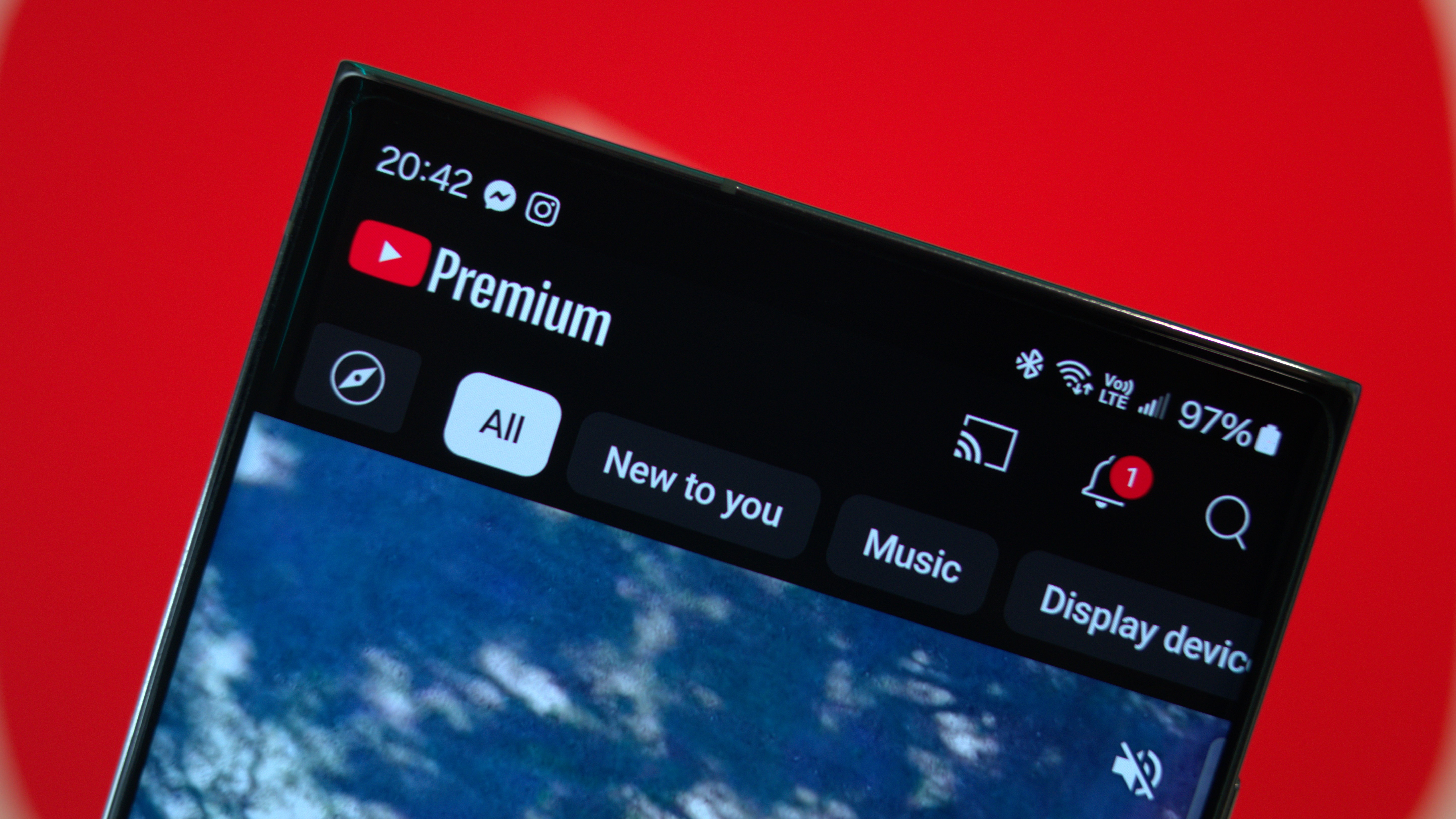Fitbit Versa 4 vs. Apple Watch Series 8: Which is best for fitness?
Fitbit Premium vs. Apple Fitness+, packed into two pretty squircle watches.
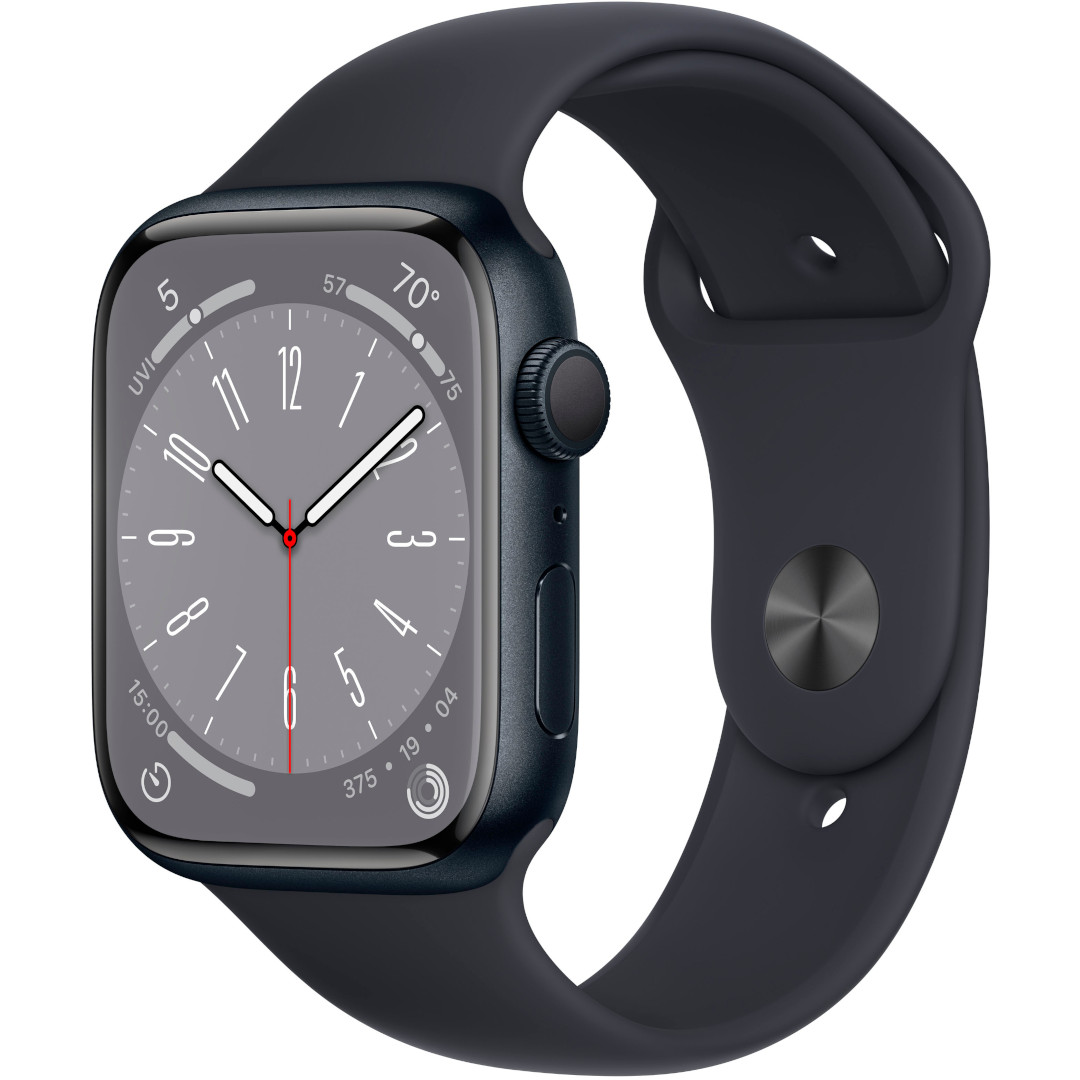
The essential smartwatch
Although it doesn't make many changes from the Series 7, the Apple Watch Series 8 remains far ahead of the pack for a quality wrist experience, and has closed the gap somewhat with more specialized fitness smartwatches thanks to new exercise software added with watchOS 9. It's more expensive and won't last very long, but it provides a bunch of health data and 3rd-party apps to keep you invested and entertained.
Pros
- Far superior apps and software speed
- Two size options, both with larger, pixel-rich displays
- New watchOS 9 fitness tracking
- No subscription required for data
Cons
- More expensive
- Just an 18-hour battery life
- iOS-only
- No body energy data
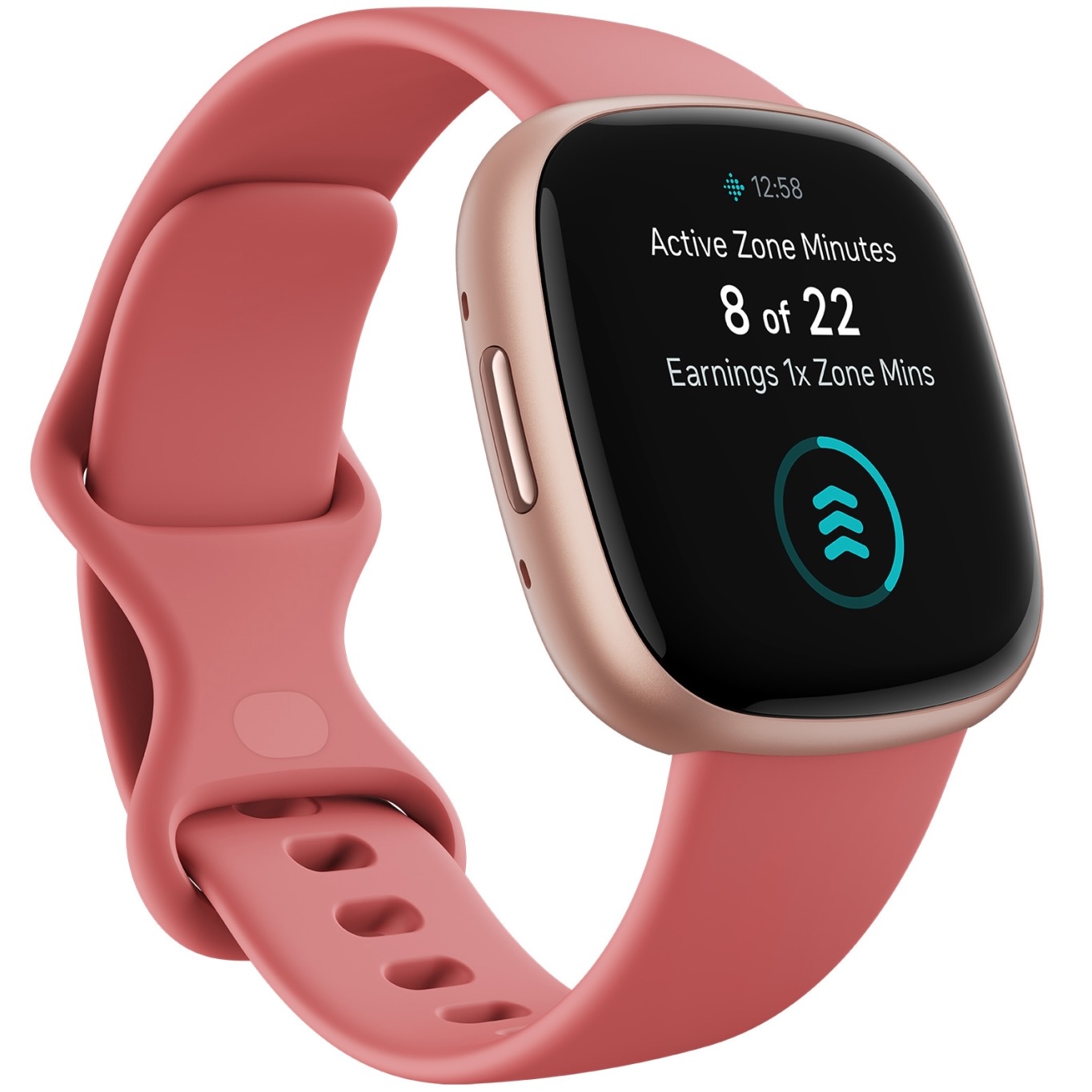
Straightforward fitness vehicle
The Fitbit Versa 4 has a few app tricks and a mic & speaker for answering calls or speaking to Alexa, but otherwise, this is a straightforward fitness watch without the smarts of an Apple Watch or the sensors of a Sense 2. You're buying this for the pretty display and Fitbit Premium integration, more or less. But it lasts nearly twice as long with GPS tracking and six times as long for standard use.
Pros
- In-depth fitness data with Premium
- 6-day battery life
- Google Wallet/Maps and Alexa support
- iOS- and Android-compatible
- More affordable
Cons
- No 3rd-party apps or music storage
- Fitbit Premium costs extra after free trial
- No ECG, skin temperature sensors
The Apple Watch Series 8 has added some great fitness tools and more health data like ovulation health to go with its iconic daily rings, which may tempt fitness-focused iPhone users to buy one. Fitbit watches like the Versa 4 cost less upfront and give you much more in-depth fitness and health data, and trade away app smarts for battery life.
We'll break down the Fitbit Versa 4 vs. Apple Watch Series 8 to help you decide which you need! The Fitbit is still the better fitness option despite Apple's recent upgrades, but the Apple Watch Series 8 has too many upsides to ignore — especially if you can grab one during a holiday sale.
Fitbit Versa 4 vs. Apple Watch Series 8: Design and display
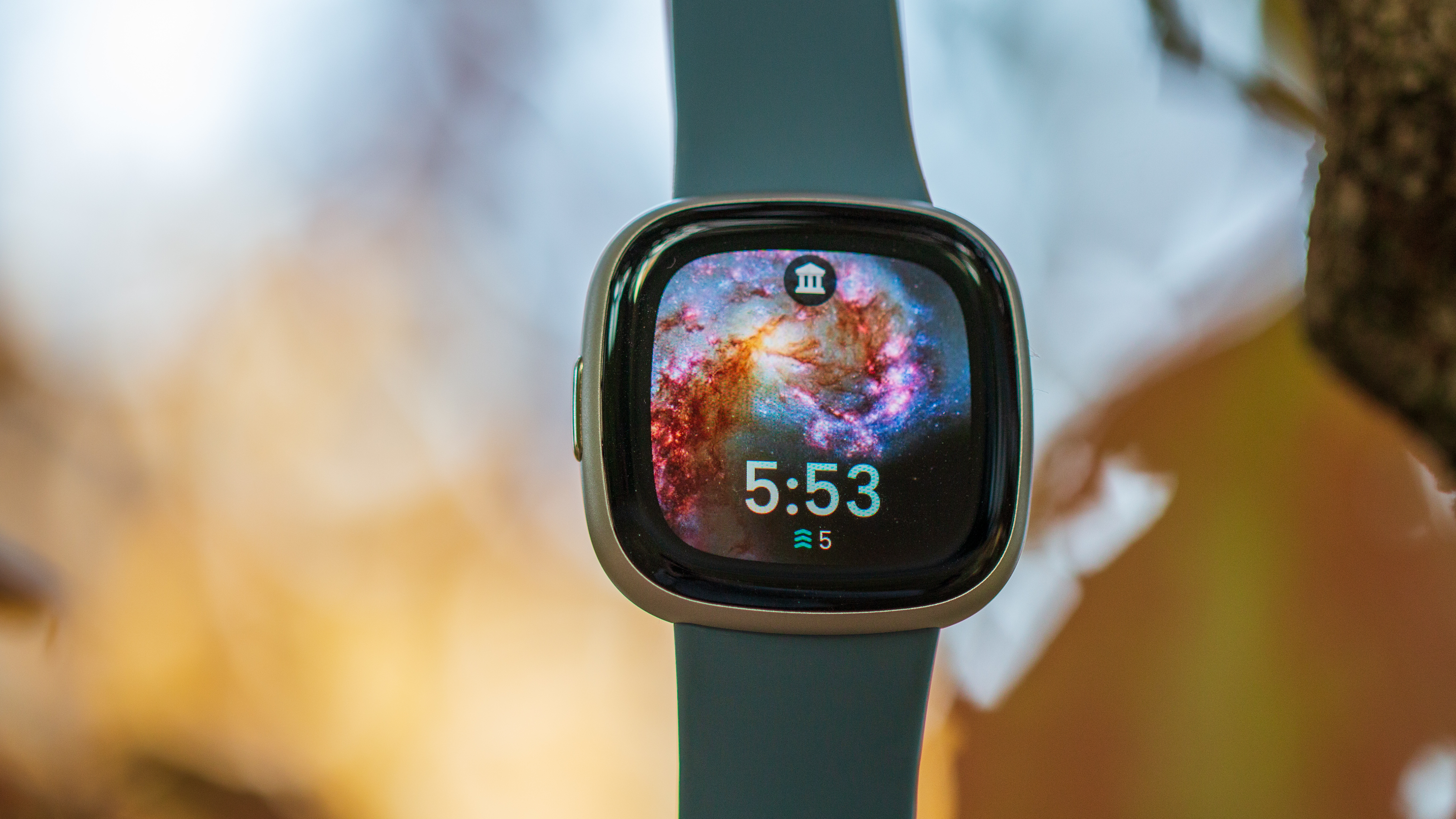
Fitbit's last few generations of smartwatches have aped the squircle design popularized by the Apple Watch series. Aside from the different band options, both watches will look fairly similar on your wrist at first glance, with colorful, sunlight-piercing AMOLED displays.
The Fitbit Versa 4 is decently light and narrow at just 1.33oz (with strap) and 11.2mm thick, making it comfortable for wearing on long runs. Bezels are noticeable but not as obscenely large as on many other fitness watches, and the aluminum case comes in Graphite, Platinum, or Copper Rose finishes.
It's a more petite version of the Versa 3, except that it readded a physical side button to replace the finicky capacitive touch button you had to squeeze to activate. While Fitbit Versa 4 bands are proprietary, you can at least use your old Versa 3 bands. Overall, while our reviewer had some issues with the Versa 4 that we'll address below, the overall look and comfort weren't the problem.
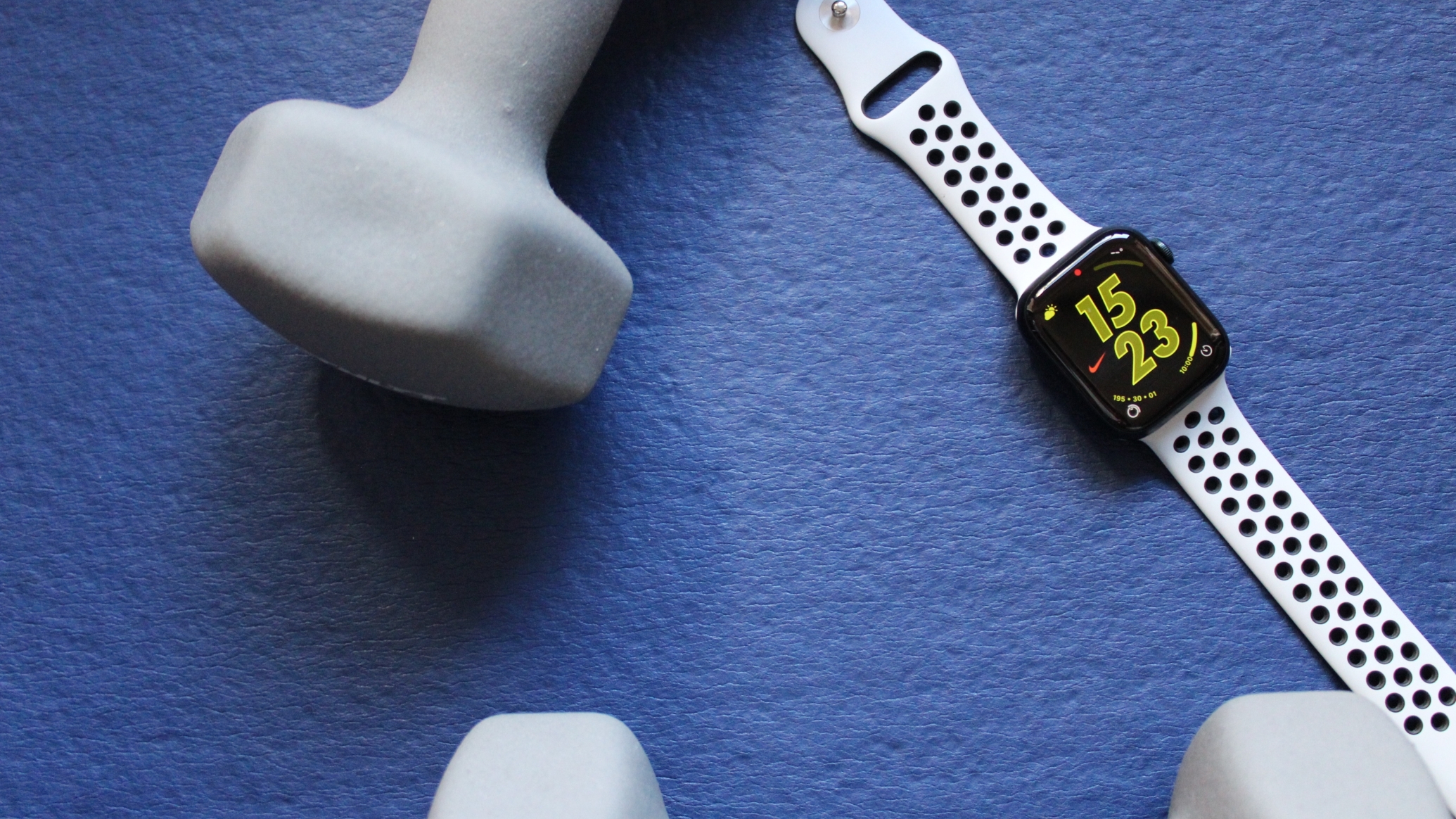
Like the Versa 4, the Apple Watch Series 8 is a near-clone of its predecessor, the Series 7. It comes in both aluminum and stainless steel finishes, but we'll default to the former as the point of comparison. The similar 41mm model "weighs" 1.13oz, but that number might not include the strap, which would add at least 0.46oz if you chose the super-light Solo Loop. And the 45mm model will weigh significantly more.
Because the Apple Watch Series 8 packs in a larger processor, it'll naturally weigh more. Despite that, it's 0.5mm thinner and is much more lightweight than most Android watches. Unless you upgrade to stainless steel, you're going to find it equally comfortable; and you'll find many more 3rd-party Apple Watch bands to accessorize your look.
Get the latest news from Android Central, your trusted companion in the world of Android
As for the display, the Versa 4 (336x336) has fewer pixels per inch than the Apple Watch Series 8 (430x352) and measures 1.58 inches against the 41mm's 1.69 inches despite being about the same size. That's primarily down to the fact that Apple has much thinner bezels and the pixels spread to the very edge of the display.
But at least the Versa 4 matches the Series 8 with up to 1,000 nits of brightness, making both watches more than visible in direct sunlight while working out outdoors.
Lastly, the Apple Watch Series 8 benefits from both a digital crown/ home button and a separate side button, which lets you have more shortcuts like accessing the last app, Siri, Apple Pay, Emergency SOS, the dock, or the power menu via holding or double-tapping buttons. The Versa 4 has its own double-tap and hold shortcuts with its one button, at least.
Fitbit Versa 4 vs. Apple Watch Series 8: Hardware and battery life
| Header Cell - Column 0 | Fitbit Versa 4 | Apple Watch Series 8 |
|---|---|---|
| Display | 1.58-inch AMOLED (336 x 336) | 1.69-inch (430 x 352) or 1.9-inch (484 x 396) Retina LTPO OLED (352x430; 396x484) |
| Brightness | Up to 1,000 nits | Up to 1,000 nits |
| Material | Aluminum | Aluminum or stainless steel |
| Navigation | Touchscreen, one button | Touchscreen, one crown, one button |
| Processor | Unknown | S8 SiP with 64-bit dual-core processor |
| Storage | Unknown | 32GB |
| Battery | Up to six days | Up to 18 hours |
| Sensors | GPS + GLONASS, optical heart rate sensor, SpO2, 3-axis accelerometer, altimeter, ambient light sensor | Accelerometer, ambient light, barometer/altimeter, compass, ECG, gyroscope, heart rate monitor, pulse oximeter, thermometer |
| Connectivity | Bluetooth 5.0, Wi-Fi 802.11 b/g/n | LTE (optional), GPS, GLONASS, GALILEO, BeiDou, QZSS, Bluetooth 5.3, Wi-Fi, NFC, Ultra wideband |
| Compatibility | Android (Amazon Alexa) or iOS | iOS (Siri) |
| Protection | 5ATM | IP6X, WR50, crack-resistant crystal |
| Size | 40.5 x 40.5 x 11.2mm, 37.64g | 41 x 35 x 10.7mm, 31.9g; 45 x 38 x 10.7mm, 38.8g |
Fitbit, like most fitness brands, doesn't advertise how much CPU processing power or RAM goes into its watches. And unlike the Versa 3, which had some limited third-party apps and music streaming, the Versa 4 is much more limited — meaning it only has unspecified storage for workout data and watch faces. It even has its wi-fi satellite permanently disabled, so it only processes updates via your phone's Bluetooth.
Put plainly, it's not a particularly "smart" watch for anything other than fitness, and scrolling through menus is optimized but not exactly speedy. But in exchange for the less demanding software, it can last 6 days per charge with heart rate tracking, though that amount will be cut down by blood oxygen tracking. As for workout tracking, it can last 12 hours with GPS enabled.
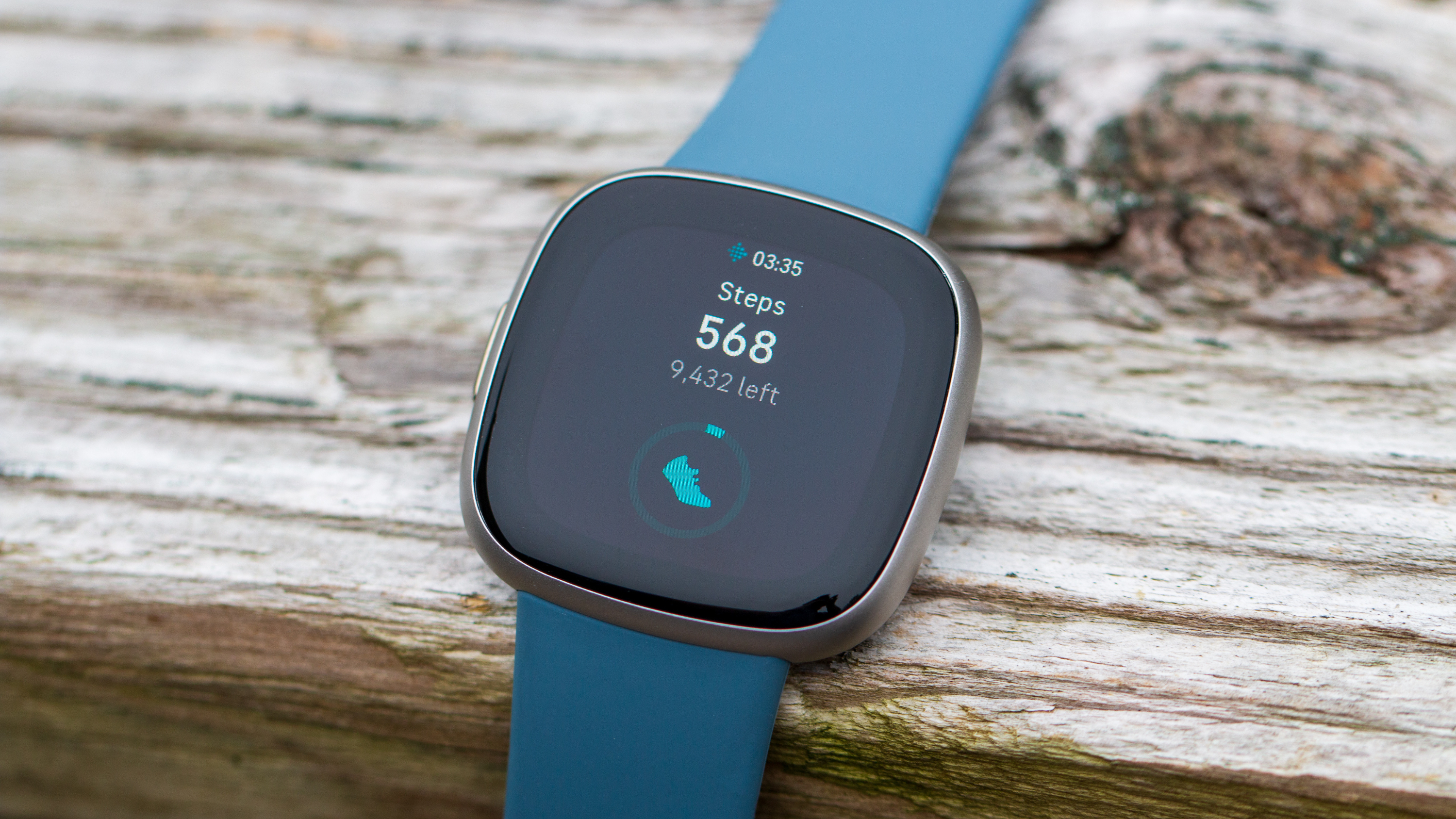
The Apple Watch Series 8, unsurprisingly, is among the fastest and smoothest experiences in the industry thanks to the Apple S8 chipset backing it. It's no different than the chip found in the S7, which we called "fast and fluid" in our review. But our colleagues at iMore noted that the Series 8 is "as snappy in performance as its predecessor," though with "[no] hardware acceleration upgrades to speak of."
Still, even treading water, the Apple Watch Series 8 gives a significantly better software experience than the Versa 4's Fitbit OS — though not necessarily a better fitness experience, as we'll discuss in the next section.
As for battery life, this remains Apple's achilles heel, as the Apple Watch Series 8 can only last 18 hours with typical use or 36 in Low Power Mode. With GPS tracking, the watch will last 7 hours, significantly less than the Versa 4 but still enough for most people if you don't burn through the battery with other apps first.
Fitbit Versa 4 vs. Apple Watch Series 8: Sensors, fitness, and apps

As previously mentioned, the Fitbit Versa 4 is somewhat downgraded compared to the Versa 3 in software tools. It no longer supports Google Assistant, Deezer, Spotify, Starbucks, Strava, or other apps. While it does still support Alexa and Google Wallet, the loss of Google Assistant is a real shame, as it made the Versa 3 especially appealing to iOS users who prefer it to Siri.
It does, at least, have a mic and speaker so you can answer phone calls or use voice-to-text to answer texts. That's not something most fitness smartwatches have.
Where the Versa 4 does shine is in its Fitbit Premium integration. Your Versa 4 will track your sleep quality and heart rate to assign you a Daily Readiness Score and Wellness Report based on 90-day health trends and your past workouts, so you know whether you're getting more or less healthy and if you're too tired to safely exercise that day.
Fitbit also offers guided workout programs meant to help keep you on a good schedule to hit your goals, as well as mindfulness sessions to help reduce your Stress Management Score.
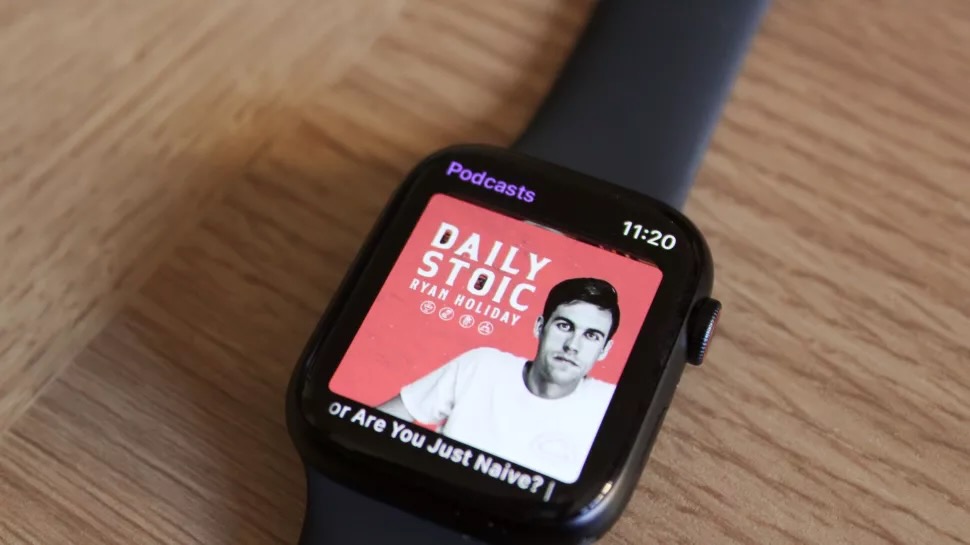
The Apple Watch Series 8 relies on watchOS 9, which is the latest, fantastic update to Apple's popular wearable software. The watch can now measure heart rate zones, running power, and running form. It lets you create Custom Workouts that challenge you to run a certain distance while maintaining the right pace, heart rate, or cadence. And it'll enable you to race against your favorite routes by the end of 2022.
Apple Fitness+ also enables you to work out at home, with your health data appearing on your TV corner while professional trainers guide you through exercises. Or, if you don't want to pay, watchOS supports other third-party fitness apps like Strava, so you have a wider variety of options.
The main thing missing from the Apple Watch is a Daily Readiness equivalent, as it'll encourage you to clear your Activity Rings even after a marathon. You'll have to be more self-guided, whereas the Fitbit Versa 4 will do a better job of warning you if you're overtaxing yourself.
Outside of fitness, of course, there truly is no comparison. There is a veritable ton of Apple Watch apps, both first- and third-party, that make it a handy daily companion on your wrist. It can store music, has optional LTE support for calls without a phone nearby, and has useful tricks like emergency SOS and crash detection.
The Fitbit Versa 4 has tap-to-pay and will receive Google Maps "soon," but otherwise, it doesn't have as much utility outside of tracking data.
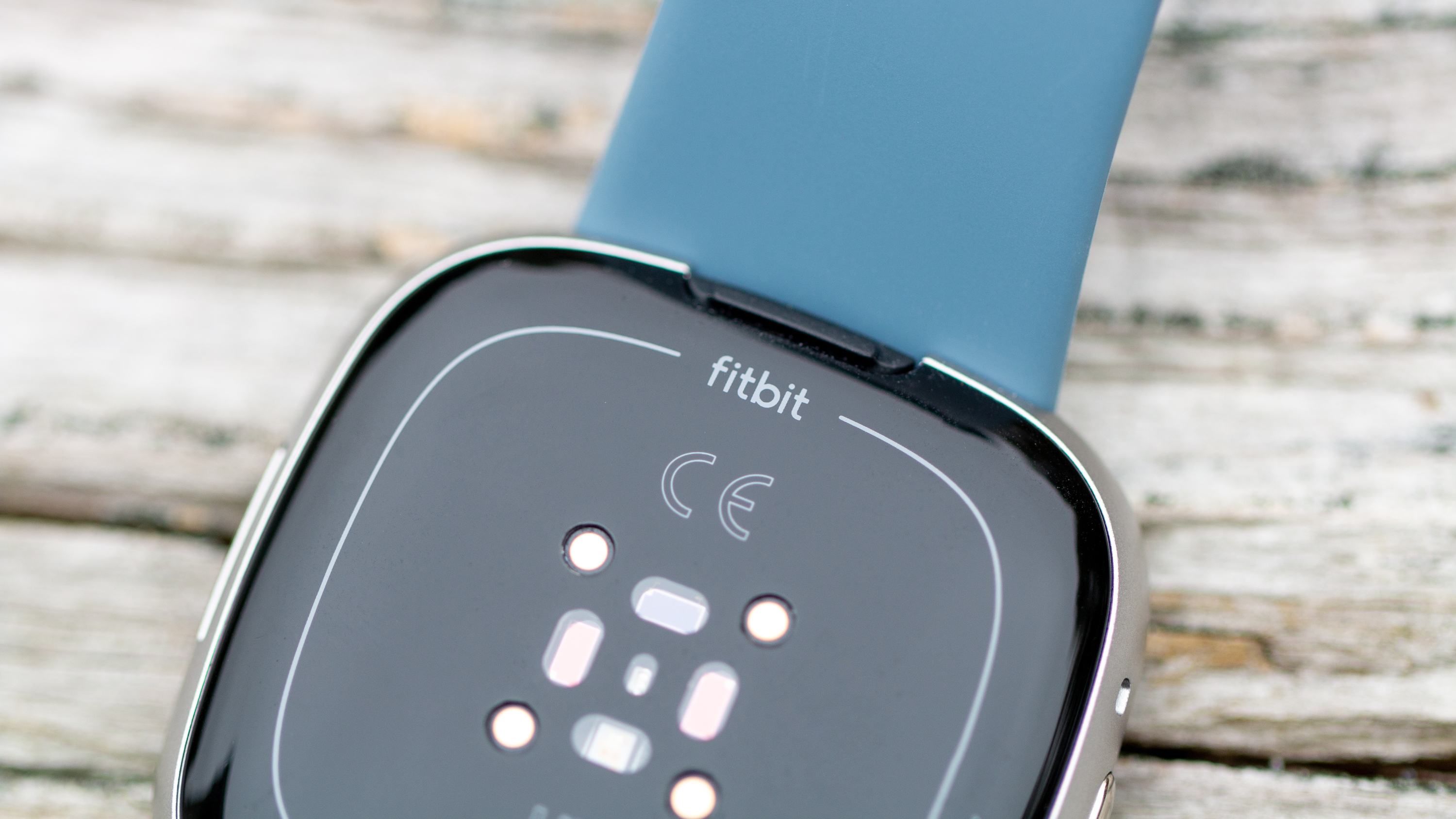
In terms of health data, the Versa 4 falls short of the Sense 2, which has more unique sensors like skin temperature, cEDA for stress, and ECG for on-demand AFib testing. Its health sensors are far more industry-standard, with the usual optical HRM and oxygen saturation (SpO2) monitoring.
Along with those two sensors, the Apple Watch Series 8 sports an ECG and skin temperature sensor. Although both watches passively track for irregular heart rate data and heart rate variance (HRV) for stress testing, only the Apple Watch lets you take an on-demand test, which could be useful for buyers with known heart issues.
Otherwise, the Apple Watch can take a nightly Wrist Temperature reading to help measure your health or for menstrual cycle tracking.
If skin temperature, stress, and/or irregular heart rate tracking are important considerations for you, you may be more interested in our Fitbit Sense 2 vs. Apple Watch guide, since that model is the superior health tracker and still costs less than Apple's watch. Otherwise, the Versa 4 has all the essentials.
Fitbit Versa 4 vs. Apple Watch Series 8: Which should you buy?
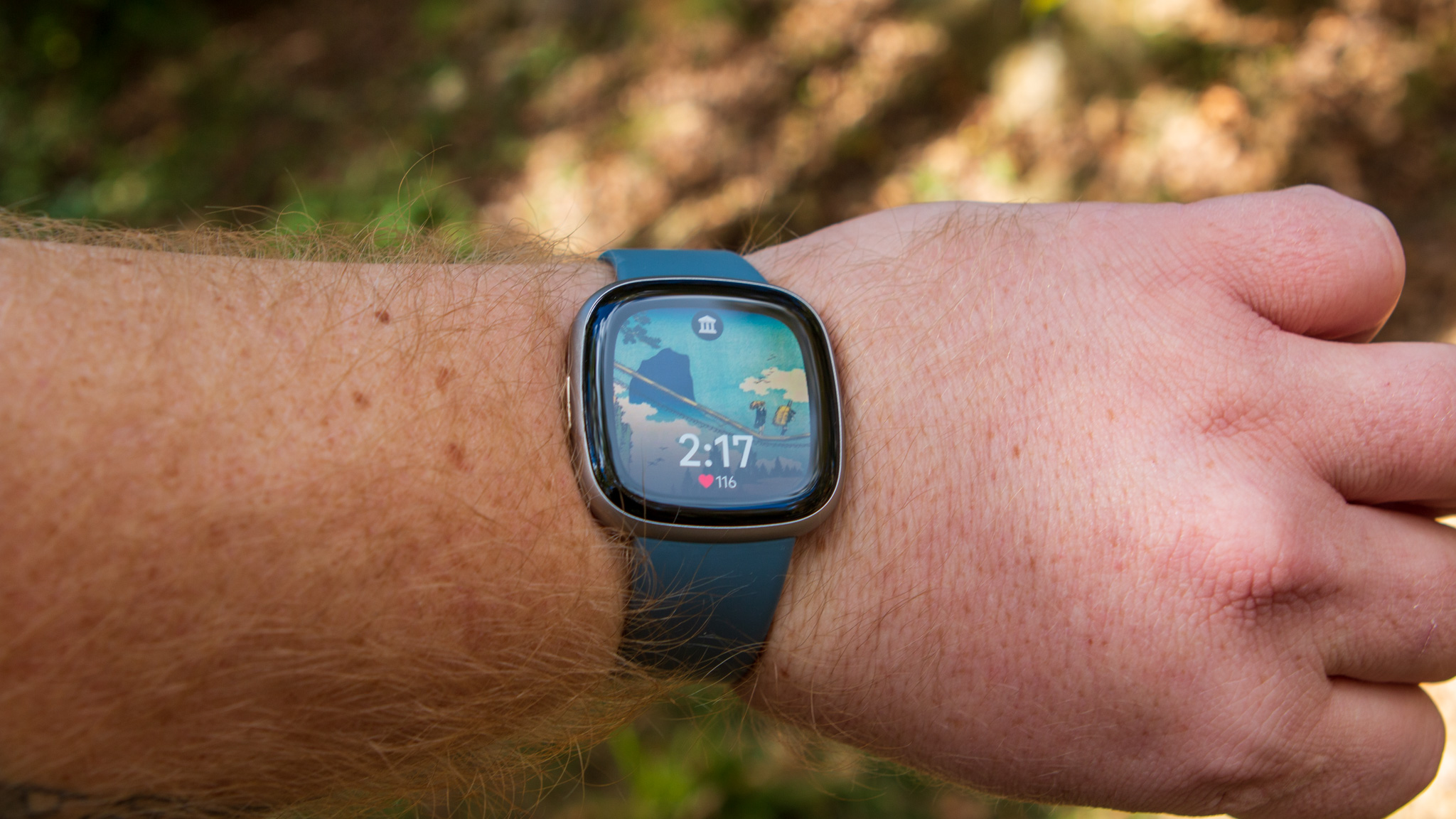
The Fitbit Versa 4 costs $170 less than the Apple Watch Series 8 at full price, a fairly significant margin. And the Apple Watch will cost even more if you upgrade to the 45mm version, add 4G or a fancy watch band like the Milanese Loop, or switch to the pricey Stainless Steel version.
However, the gap will close after your 6-month free trial to Fitbit Premium ends; at that point, you'll have to pay $80/year or $10/month, which means after about 2.5 years, the Versa 4 and 41mm aluminum Series 8 will cost the "same" unless you plan to subscribe to Apple Fitness+ for its guided workouts. In that case, the Versa 4 will still save you money.
Money aside, the Apple Watch Series 8 is a very tempting lifestyle watch with fitness aspirations, that could get even better for fitness with future software updates. Opposite it is the Fitbit Versa 4, which is dedicated to health and fitness but has a stripped-down software experience that won't appeal to some buyers.
Android phone owners will obviously choose the Versa 4 since it's the only Android-compatible device. For iPhone owners, it's a tougher choice that only you can make based on your priorities.

Choose the Apple Watch if you're okay to spend more upfront for a proper lifestyle watch that doubles as a casual fitness watch, with a beautiful display and tons of app integrations. Don't choose it if you hate charging a watch every night or want something for all-day fitness tracking.

Choose the Fitbit Versa 4 if you want a fitness tracker that looks attractive, lets you answer calls, and will let you use Google Maps for guided workouts. Don't choose it if you want music streaming, third-party apps, or an optional subscription, since Premium is pretty essential for making the Versa 4 worth it.

Michael is Android Central's resident expert on wearables and fitness. Before joining Android Central, he freelanced for years at Techradar, Wareable, Windows Central, and Digital Trends. Channeling his love of running, he established himself as an expert on fitness watches, testing and reviewing models from Garmin, Fitbit, Samsung, Apple, COROS, Polar, Amazfit, Suunto, and more.
